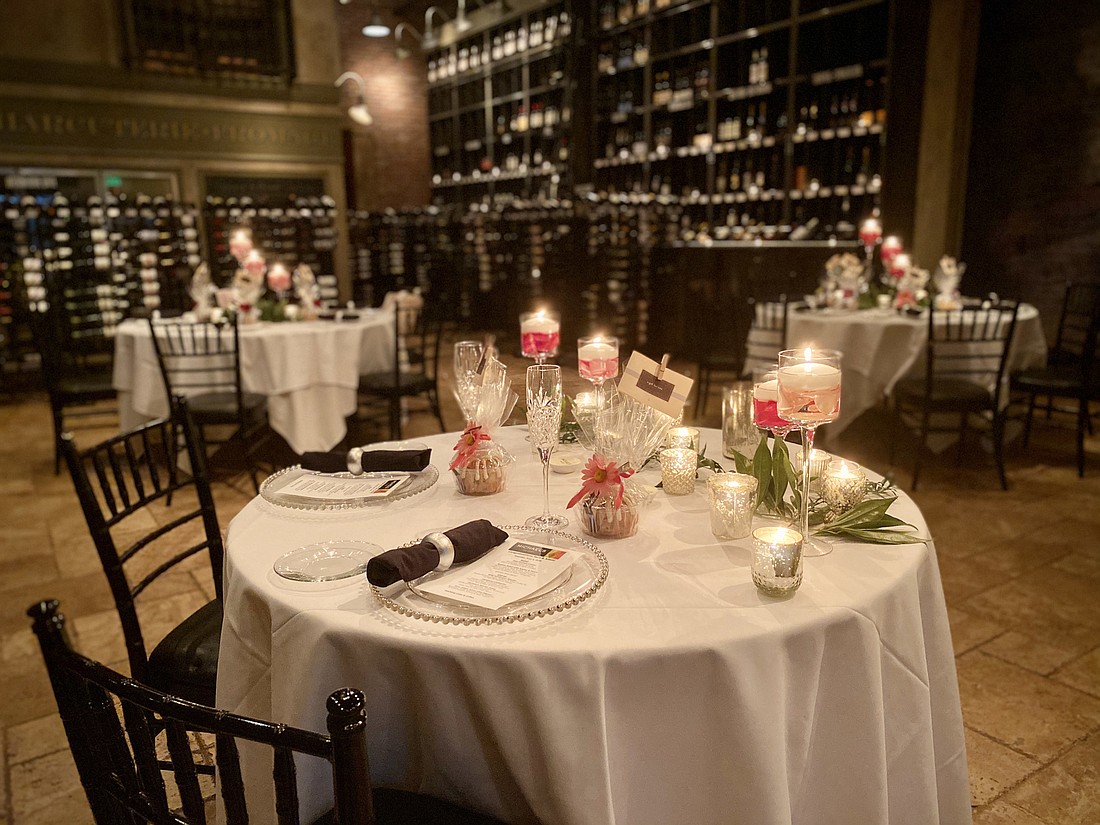- November 23, 2024
-
-
Loading

Loading

In normal times, if there was a luncheon in Sarasota on your calendar, chances are it was at Michael’s On East.
Large events, from luncheons to nighttime fundraisers to weddings, are a big part of business for Sarasota-based Michael’s. The pandemic has put a dent in that, with events being cancelled one after the other. While those cancellations have certainly impacted the company, Michael’s, a longtime community favorite for events and restaurant dining, has risen to the challenge by introducing some new options for customers. It's an effort multiple peers in hospitality in the region are likewise being forced to do quickly, to adapt to new circumstances.
‘You have to keep the debt ratio very low in business. You never know what’s going to happen.’ — Phil Mancini, Michael’s On East
For one, Michael’s, which opened in 1987, is encouraging micro-events for smaller groups of people. It’s also offering a Michael’s at Home program with meal pickup and delivery. That’s proven popular, with some customers asking if it will continue post-pandemic.
Diversification has been key for Michael’s On East during the coronavirus. It’s not only a restaurant, not only a catering company, not only a wine store and not only a meal pickup and delivery business. It’s all of those things. Says Co-Proprietor Phil Mancini, “Being just a catering company right now would be pretty devastating.”
In early March, as the pandemic heated up, Mancini called a meeting with employees. “We immediately had to react,” he says. “We knew events would get cancelled. As soon as one event cancelled, it seemed like it was just a domino effect.”
Four people in the sales office, including Mancini, took calls that led to the cancellation of 250 to 300 functions.
With an election looming, Michael’s would usually be booked with political events, but there hasn’t been much of that over the summer, either. But there are still weddings and other events scheduled for the fall along with Christmas parties. “I feel like they’re taking it one month at a time, and so are we,” says Mancini. “We’re just working with everyone on a one-on-one basis.”
The micro-events have helped soften the blow. Mancini says they recently hosted an event for a family of 11, one wedding for 57 people and another for 15 people in a home. Employees went into the home with masks, gloves and hand sanitizer.
Nonprofits that usually host large fundraising events at Michael’s are looking at things differently now, too. Mancini says most have a Plan A and Plan B in place. Plan Bs range from a secondary date next season to a micro-event or a virtual function.
Michael’s Wine Cellar, a wine and spirits shop and event venue, has been a bright spot during the pandemic. The Wine Cellar is way up in sales, says Mancini, a big win. It’s also gotten busier as a smaller venue for micro-events, from weddings to 50th anniversaries.
While a nice revenue stream, Mancini says increased sales and micro-events haven’t balanced out total business lost during the pandemic. Also, in still being in business, Michael’s recently faced what has become a more common restaurant challenge, when an employee tested positive for coronavirus in May. Michael’s decided to shut down and wait two weeks to reopen. (The employee later tested negative multiple times, Mancini says.) “It was hard to close, but I think it actually helped us a little,” he says. The time gave them a chance to regroup and take a harder look at what could be done better. Now one employee at the restaurant, for instance, follows behind every guest sanitizing rails, doors and everything people touch.
One of the most popular additions in recent months is Michael’s at Home, which gives customers the chance to eat a Michael’s meal by picking it up or having it delivered to their home. “I think we’ll probably keep that in place for good,” says Mancini. “Numerous customers have said, ‘Please don’t stop.’ They’re really enjoying it.” He says one customer who doesn’t like to order through the website just went ahead and sent him $1,000. An employee takes care of that customer by phone, almost like a concierge. Because of the success of the program, the company is now even investing in better systems to improve Michael’s at Home.
One key lesson in all this Mancini has learned, he says, is businesses should look at pandemic impacts in stages. For many companies in the area, July, August and September are notoriously not busy anyway. But, he says, losing out on a good amount of business in October, November and December would be crushing for many. That’s what people have to plan for. “I have prepared like this my whole life — prepare for the worst and expect the best,” says Mancini. “I’m very old school when it comes to a business. We paid for things as we went along. We didn’t overdo things. We have always run the business like that. You have to keep the debt ratio very low in business. You never know what’s going to happen.”